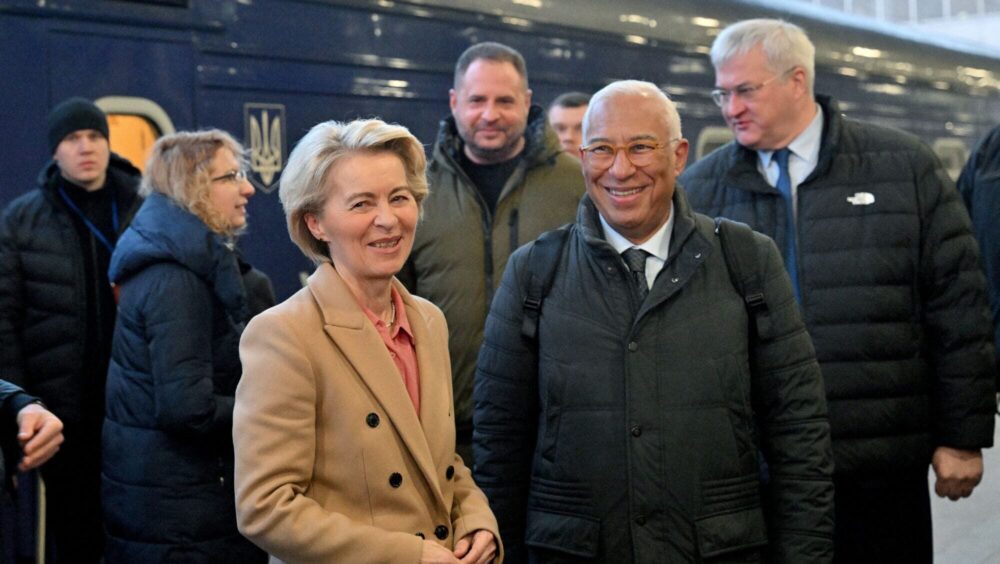
President of the European Commission Ursula von der Leyen (L) and President of the European Council Antonio Costa
Sergei SUPINSKY / AFP
Commission chief Ursula von der Leyen is among the slew of world leaders in Kyiv today to mark three years since Russia invaded Ukraine—and, more important for them, to display a fantastical European show of strength.
On the 3rd anniversary of Russia’s brutal invasion, Europe is in Kyiv.
— Ursula von der Leyen (@vonderleyen) February 24, 2025
We are in Kyiv today, because Ukraine is Europe.
In this fight for survival, it is not only the destiny of Ukraine that is at stake.
It’s Europe’s destiny. pic.twitter.com/s0IaC5WYh6
Despite talk of unity on how to act in the fourth year of this conflict, and delusional plans for a ‘parallel-NATO,’ European leaders are singing from totally different hymn sheets, particularly when it comes to sending troops to Ukraine.
Larger cracks are also emerging on the prospect of Brussels putting up more aid payments for Ukraine. Hungary remains opposed to additional military aid, while it is clear that other EU member states are simply hiding behind its stance. Italy and Spain, for example, appear reticent to speak up on blocking payments while Viktor Orbán’s administration is taking the heat for them instead.
EU leaders would likely be just as willing to hide behind Hungary over talks on Ukraine joining the bloc, despite their own reservations.
Where governments are not bickering, they are competing—to win the favour of Donald Trump, in the case of Britain and France. French president Emmanuel Macron today managed to jump ahead of UK prime minister Keir Starmer’s White House visit as both seek to claim victory on persuading Trump that Ukraine must be at the centre of peace talks.
Not that Trump cares either way, criticising both leaders on Saturday for not doing “anything” to end the war and effectively endorsing Starmer’s major political opponent, Reform leader Nigel Farage. In the meantime, the U.S. president’s special envoy, Steve Witkoff, who had a one-on-one meeting with Putin earlier this month, hinted in an interview with CBS on Sunday, 23 February that “it is now up to President Putin and President Trump to work something out and I think they’re going to be successful.”
And as if to add to the mess, Friedrich Merz—about whose victory in the German elections most European leaders have been silent—has called for Continental “independence” from the U.S.
Volodymyr Zelensky said for his part over the weekend that he would be willing to give up his Ukrainian presidency if that meant peace and protection from NATO (not Europe’s hollow alternative to the alliance). He also today praised “three years of absolute heroism” from Ukrainians, who he described as defending “all free nations.”
